Is It Time for 24-Hour Alzheimer’s Care?
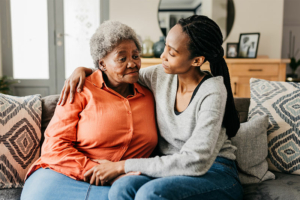
24-hour Alzheimer’s care empowers individuals to continue living at home safely and independently.
Caring for a family member with Alzheimer’s disease requires continuous adaptation to the person’s changing needs. As the condition progresses, there comes a point when 24-hour Alzheimer’s care becomes not only beneficial but necessary for ensuring the safety, well-being, and good quality of life for the person.
Here are key indicators that signal the appropriateness of transitioning to round-the-clock care:
- Safety Concerns: One of the primary reasons behind considering 24-hour Alzheimer’s care is an escalation in safety concerns. Wandering, forgetting to turn off appliances, or experiencing challenges with activities of everyday living increases the risk for injuries or accidents.
- Sleep Disturbances: As dementia progresses, sleep patterns often become disrupted. Nighttime confusion, wandering, or agitation may lead to sleep deprivation for the individual and you as their caregiver, impacting overall health and well-being.
- Inability to Perform Basic Tasks: When the person starts to have trouble with basic tasks such as bathing, dressing, or eating, 24-hour care ensures consistent support for these activities, promoting dignity and empowering the individual to maintain the highest possible quality of life.
- Decline in Physical Health: Dementia can affect an individual’s physical health, resulting in challenges with mobility, coordination, and self-care. Round-the-clock care ensures prompt help with any physical needs which could arise.
- Medical Monitoring Requirements: Some people with dementia may have underlying health conditions that necessitate regular monitoring. Continuous care allows for close observation of medical needs and timely intervention.
- Frequent Hospitalizations: If the individual is experiencing numerous hospitalizations as a result of complications related to dementia, 24-hour care may be necessary to provide consistent monitoring and preventive measures.
- Communication Barriers: Advanced dementia often results in communication difficulties. Professional caregivers experienced in communicating with those who have dementia can enhance the individual’s overall quality of life and minimize frustration.
- Caregiver Burnout: The demands of providing care for a person with dementia can be overwhelming. If you’re experiencing exhaustion or other signs and symptoms of caregiver burnout or depression, it may be an indicator that 24-hour care is needed.
- Increased Behavioral Challenges: Aggression, agitation, or challenging behaviors may increase as dementia progresses. Professional caregivers trained in managing these behaviors can provide a more secure environment and prevent potential harm.
Note that if the individual’s behaviors are causing you or the person to be in danger of harm, it is a good idea to investigate care home options, where multiple caregivers are readily available to ensure everyone’s safety.
At Responsive Home Care, we provide specialized dementia care from skilled, trained, and experienced care professionals, customized to the needs of the individual. During the early stages of the disease, this may mean just a couple of hours of help and support. Once the disease progresses, we can increase the level of care to ensure comfort and safety, up to and including 24-hour Alzheimer’s care.
Contact us online or call us any time at 954-486-6440 to learn more about our in-home dementia care in Fort Lauderdale, Hollywood, Lighthouse Point, or the surrounding areas.

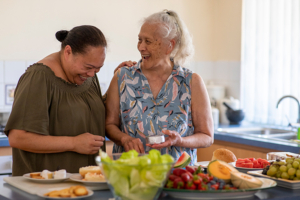
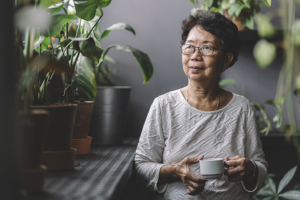
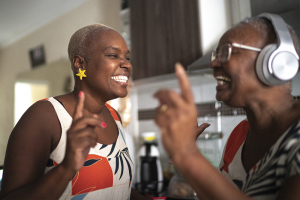

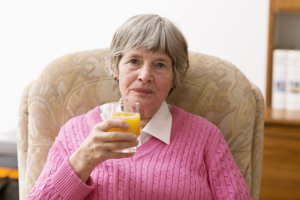
 Agitation is among the more difficult effects of dementia, and may be exceedingly frustrating for family members to manage. The key is in taking steps to handle agitation before it’s felt and expressed by the senior loved one, which involves keeping track of what has triggered these feelings in the past, and establishing a home environment in which those stimulants are eliminated or minimized. The
Agitation is among the more difficult effects of dementia, and may be exceedingly frustrating for family members to manage. The key is in taking steps to handle agitation before it’s felt and expressed by the senior loved one, which involves keeping track of what has triggered these feelings in the past, and establishing a home environment in which those stimulants are eliminated or minimized. The